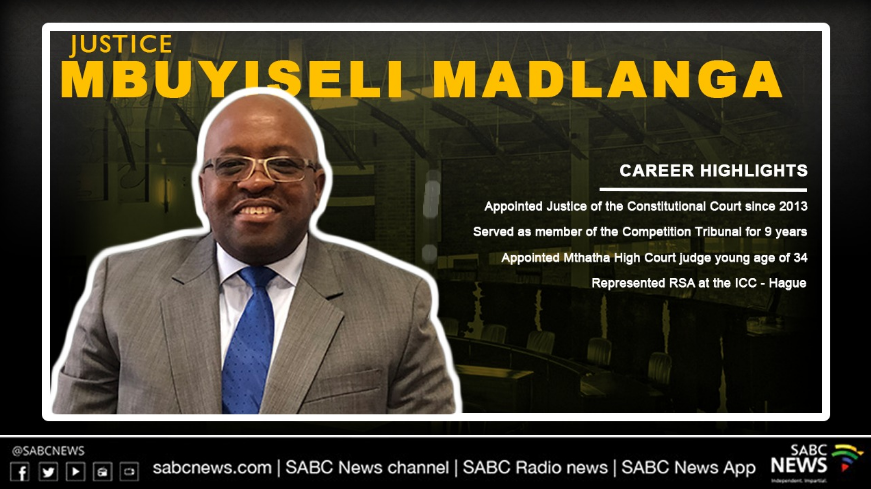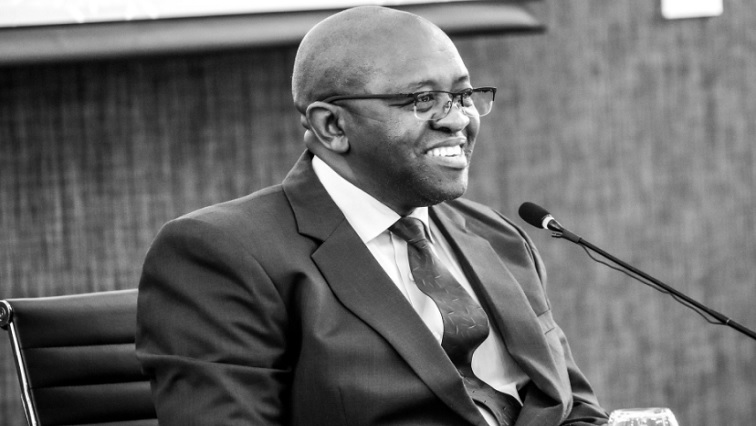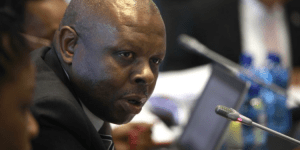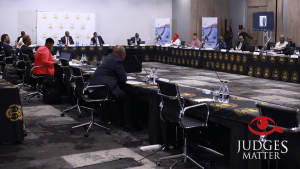The separation of powers between the three arms of the state was one of the questions that Chief Justice nominee Mbuyiseli Madlanga had to answer. He told the Judicial Services Commission that there can never be a complete separation of powers.
He was responding to Justice and Correctional Services Minister Ronald Lamola during question time from JSC commissioners. Lamola’s question was coupled with one on the court administration model. This was Lamola’s question:
“My question relates to the separation of powers and the court administration model. What do you see as the role of the three arms of the state with regards to the separation of powers and in the development of the court administration model with examples of benchmarks that yourselves as the judiciary, might have done. And what do you think will be the role of the Chief Justice to ensure that the court administration model does materialise? “
Madlanga responded: “The Constitutional Court said that even though there is this separation, our model is such you can never talk about 100% separation. There may be that area of confluence or an area of a bit of mixing up. And how did it arise, it arose in the context of the health matter, it arose with regard to the question of whether a judge could head up an investigative unit, which at the time was even named after the judge and it was called the Heath Special Investigative Unit, and the Constitutional Court said no, that cannot happen. But in other contexts like for instance issues around the issuing of warrants of arrest, which in a way some might view as more what the Executive does, judicial functions, but the court said no, but because that requires the sort of application of the mind which in a sense is the exercise of a judicial function, the allowance can be made for the judiciary to perform those sort of functions.”
Justice Mbuyiseli Madlanga’s Judicial Services Commission interview:
Delays in Constitutional Court judgements
Answering a question regarding the frequent public criticism on the excessive delays in Constitutional Court judgments earlier, Madlanga said that the Constitution’s 17th Amendment Act of 2013 saw a steady rise in new applications to the court.
The act expanded the apex court’s jurisdiction to matters of general public importance. He said new applications to the Constitutional Court have steadily risen from 200 in August 2013 to nearly 400 last year.
Madlanga said he has been part of a process to revise the system by which judges of the Constitutional Court work and added that it is his vision that judgments be delivered within six months going forward.
“You have this deluge of applications but the time has not stopped for you to comment on other colleagues’ post-hearing notes. Remember it’s 11 of us, you must comment on 11 post-hearing notes that are in circulation and once drafts come in you must draft judgments, you must comment on the 10 draft judgments and as I have tried to emphasise, you have this deluge of applications that have come in at the same time.”






